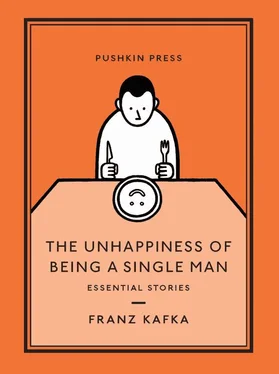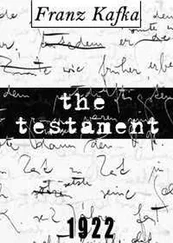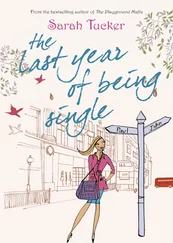As well as the spectators, who came and went, there were also warders chosen by the public—strangely enough, they were usually butchers—whose job it was to watch the hunger artist day and night, always three at a time, so that he couldn’t secretly take a bite of food. But it was only a formality introduced to reassure the audiences, because those involved knew full well that during a fast the artist would never, under no circumstances, not even under duress, have eaten even the tiniest snack; the honour of his art forbade it. It’s true that not every warder could understand that; you sometimes got groups of warders who’d do a very lax job of watching the artist at night, intentionally sitting together in a remote corner of the room and engrossing themselves in a game of cards with the obvious intention of allowing the artist to gulp some small morsel that they imagined he’d be able to produce from somewhere. Nothing was more painful to the hunger artist than this kind of warder; they lowered his spirits; they made the hunger incredibly hard to bear; sometimes he gathered enough strength to sing during these watches, for as long as he could, to show these people how wrong they were to be suspicious of him. But it hardly helped; they just wondered about how he’d learnt to sing and eat at the same time. He much preferred the warders who sat up close against the bars, who weren’t satisfied by the dim lighting in the hall and fixed him with electric torches that the impresario provided. The harsh light didn’t bother him at all, he couldn’t fall properly asleep anyway, and he could always doze a little, regardless of how bright or what time it was, even when the hall was packed and noisy. With warders like these he was very willing to pass the night without any sleep; he was ready to joke around with them, to tell them stories from his nomadic life or to listen to their stories, anything to keep them awake and show them over and over again that there was nothing edible in his cage and that he was fasting as none of them ever could have. But he was at his happiest when morning came and they were brought an enormous breakfast, billed to him, which they threw themselves on with the appetite of healthy men who’d spent a long night at their posts. A few people managed to convince themselves that these breakfasts were an attempt to unduly influence the warders, but that really was going too far, and when they were asked whether they’d like to prove the point by taking the night watch themselves, without any breakfast, they made themselves scarce, albeit without giving up their scepticism.
These, however, were merely some of the suspicions that were inseparable from the art of fasting. After all, no single person could spend every day and night uninterruptedly watching the artist, so no one could tell with his own eyes whether the artist really was fasting uninterruptedly, that is, flawlessly; only the hunger artist was in a position to know that; he himself was the only spectator who could have been completely satisfied by his fast. But there were other considerations that meant satisfaction always eluded him. In fact, it was perhaps not even the fasting itself that emaciated him so much that some people had to stay away from the performances, to their regret, because they couldn’t bear to look at him; perhaps he was only so emaciated because of his dissatisfaction with himself. He alone knew something that even the most obsessive fans didn’t, namely how easy it was to fast. It was the easiest thing in the world. He didn’t try to hide it, but no one believed him; at best they thought him modest, but usually they assumed that he was looking for publicity or even that he was a cheat who found fasting easy because he’d found some means of making it easy, and now even had the chutzpah to more or less admit it. He had to put up with all this, had got used to it over the years, but on the inside this dissatisfaction was always gnawing at him and he had never, in no fast—he insisted on having a certificate stating this made out—he had never willingly left the cage. The maximum fasting time had been set by the impresario at forty days; he never let it go on beyond that, not even in the capital cities, and for good reason. Experience showed that, for about forty days, ever increasing publicity could whip up a city’s interest to greater and greater heights, but after that the audiences would start to dwindle and there would be a marked tailing off in the show’s popularity; of course there might be small differences between cities and countries, but as a rule it was true that forty days was the maximum. So on the fortieth day the door to the flower-bedecked cage was opened, a rapturous audience packed the amphitheatre, a brass band played, two doctors went into the cage to perform the necessary tests on the hunger artist, the results were relayed to the spectators through a megaphone, and last of all came two young ladies, who were very happy to have won the raffle and now wanted to lead the hunger artist out of the cage and down a couple of steps to a little table where a carefully prepared recovery meal had been laid out. And in that moment the hunger artist always resisted. Although he would willingly put his bony arms into the helpfully outstretched hands of the two ladies bending down to him, he didn’t want to get up. Why stop now after forty days of hunger? He could have held out much longer, indefinitely; why stop when he was at the peak, not even yet at the peak, of his fast? Why did they want to deny him the fame of fasting longer, of becoming not just the greatest hunger artist of all time, which he probably already was, but also of surpassing himself and carrying on into a performance that was beyond human understanding—because he could feel no limits to his capacity for hunger. Why did these crowds, who claimed to admire him so much, have so little patience with him; if he could hold out for longer, why shouldn’t they? Also he was tired and sitting comfortably on the straw, and they wanted him to get up and walk over to this meal, the mere thought of which made him feel nauseous, something he only suppressed, with difficulty, out of consideration for the ladies. And he looked up into the eyes of the ladies who seemed so friendly but were in reality so cruel, and shook his over-heavy head on his weak neck. But then happened what always happened. The impresario came and silently—the music made talking impossible—raised his arms above the hunger artist, as if inviting the heavens to look at his work here on the straw, this pitiable martyr, something the hunger artist certainly was, albeit in a quite different sense; he clasped the hunger artist around his thin waist, taking exaggerated care to show everyone what a fragile object he was handling, and—subtly shaking him a little so that the hunger artist’s legs and upper body swayed loosely back and forth—handed him over to the young ladies, who were now deathly pale. After that, the hunger artist acquiesced to everything; his head lay on his chest as if it had rolled there and inexplicably stopped; his torso had been hollowed out; his legs pressed themselves together at the knees as if in self-preservation, dragging along the ground as though it wasn’t real and the real ground was somewhere below it; and the whole, very small, weight of his body was deposited on one of the young ladies, who, appealing for help and hyperventilating—this was not how she’d imagined her honorary task—at first stretched out her neck as far as possible to keep at least her face from touching the hunger artist, then, when that didn’t work and her luckier companion didn’t help, made do with reaching out, trembling, to the artist’s hand and carrying that little packet of bones ahead of herself, the first young lady burst into tears, to the delighted laughter of the amphitheatre, and had to be relieved by an attendant who’d long been standing by for that very purpose. Then came the meal, a few scraps of which the impresario pushed into the hunger artist, who was in a half-sleep bordering on unconsciousness, while the impresario kept up an entertaining patter that was intended to distract attention from the state the artist was in; finally a toast was drunk to the audience, supposedly at the whispered suggestion of the artist; the band confirmed everything with a mighty flourish, people went their separate ways, and nobody had any right to be dissatisfied with what he’d seen, nobody, only the hunger artist, always only him.
Читать дальше












